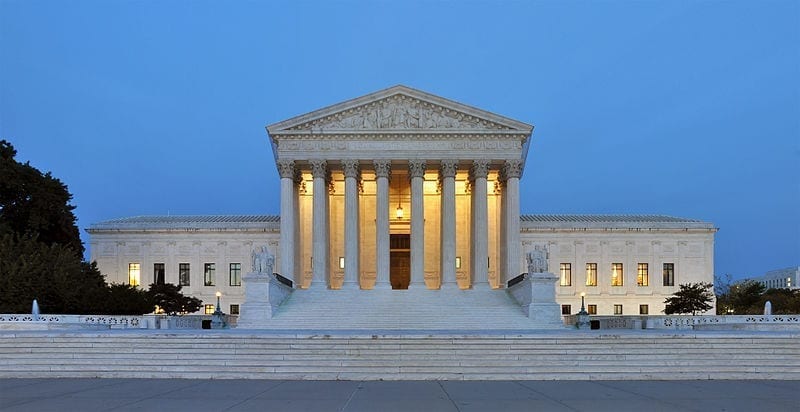On Monday, the Supreme Court announced it’d opt not to take up a case on net neutrality.
According to The Washington Post, the decision didn’t come as the result of outright rejection. Three of the high court’s justices—Clarence Thomas, Samuel Alito and Neil M. Gorsuch—were in favor of accepting a review. If they don’t so, posits the Post, they may have erased a lower court precedent upholding the 2015 Federal Communications Commission’s creation of net neutrality rules.
But there weren’t enough justices to form a majority, due largely to recusals.
Chief Justice John G. Roberts Jr and Justice Brett M. Kavanaugh both recused themselves. Roberts, reports the Post, has ties to Time Warner, while Kavanaugh participated in the lower court case on net neutrality.
As a consequence of the Supreme Court’s failure to act, a U.S. Court of Appeals for the D.C. Circuit’s decision stands.
That opinion, says the Post, ‘held that the FCC had acted within its powers when it approved sweeping new rules the year before that imposed new obligations on Internet providers such as AT&T, Comcast and Verizon.’

Those same rules were overturned by the FCC in 2017. Acting under the guidance of Chairman Ajit Pai—a Republican and former Verizon executive—the committee forfeited its authority over net neutrality, signing the task of regulation over to the Federal Trade Commission.
The FCC’s 2017 repeal went into effect over the summer, spurring a wave of litigation from technology companies and consumer groups.
Considering that Pai and his conservative colleagues already played a role in abolishing net neutrality, it seems paradoxical for the Supreme Court’s refusal to make waves. Technocrunch.com suggests that justices’ recusals denied broadband companies the opportunity to erase the lower court’s decision from history.
“Legal support for a strong net neutrality rule,” writes Technocrunch.com, “is kryptonite to the broadband industry.
“Broadband and cable providers want to erase any evidence that the 2015 rules were ever acceptable at all,” the site reports. “A coalition of these industries filed the petition to have the case reheard based on the idea that since the FCC had changed its mind on things, any decision resting on its previous determinations should be revisited—and, they hoped, eliminated.”
The current FCC also lent its support to the petition—a move that was decried by Democrats serving with the Commission.
“It wasn’t enough for this FCC to roll back #NetNeutrality,” tweeted Jessica Rosenworcel, a Democratic commissioner with the FCC. “It actually petitioned the Supreme Court to erase history and wipe out an earlier court decision upholding open internet policies. But today the Supreme Court refused to do so.”
Several plaintiffs involved in the petition said the refused review “wasn’t surprising” and shouldn’t be taken as Supreme Court support for any particular position.
“Today’s decision is not an indication of the Court’s views on the merits but simply reflects the fact that there was nothing left for the Court to rule on,” the Internet and Television Association said in a statement.
Nevertheless, National Public Radio says the lower court’s verdict could now be considered a form of precedent in potential proceedings against the FCC’s 2017 reversal.
Sources
Supreme Court declines to take on net neutrality challenges, in blow to telecom industry
Supreme Court Won’t Review Decision That OK’d Obama-Era Net Neutrality Rules
The Supreme Court won’t take up net neutrality
U.S. Supreme Court declines appeal against net neutrality laws


Join the conversation!